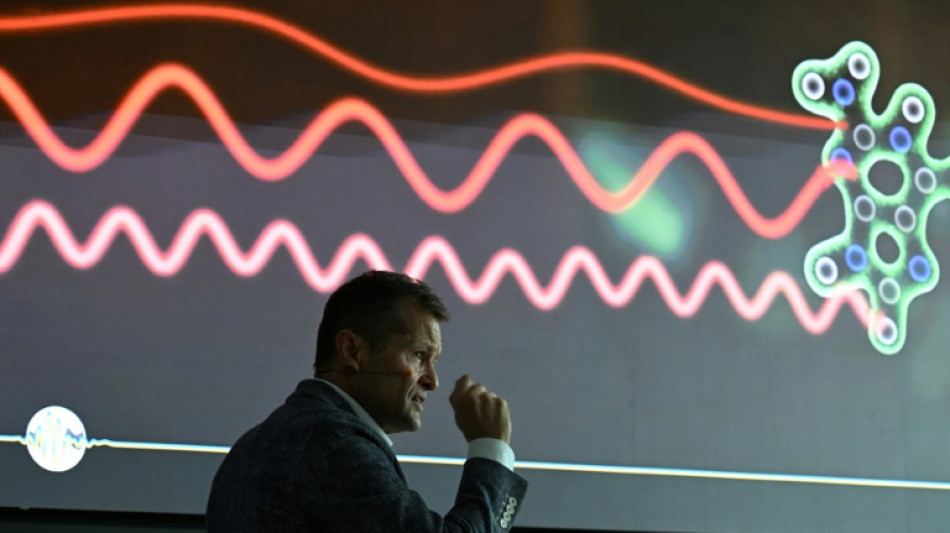
-
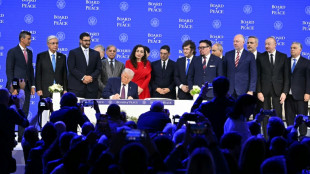 Trump launches 'Board of Peace' at Davos
Trump launches 'Board of Peace' at Davos
-
Stocks rally as Trump drops Greenland tariff threats
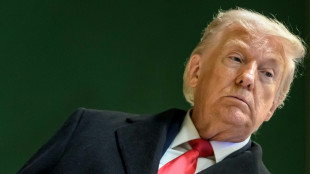
-
 Mercedes unveil 2026 F1 car for new 2026 rules
Mercedes unveil 2026 F1 car for new 2026 rules
-
Djokovic, Sinner plough on in Melbourne, Wawrinka makes history
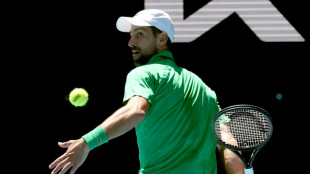
-
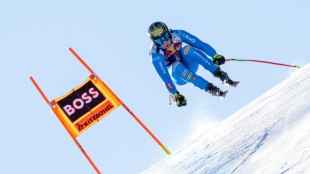 Kitzbuehel's Hahnenkamm, the terrifying Super Bowl of skiing
Kitzbuehel's Hahnenkamm, the terrifying Super Bowl of skiing
-
'Oasis of stability': Madrid becomes luxury housing haven

-
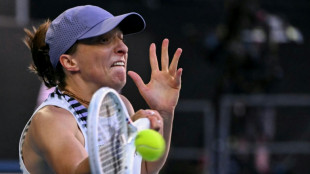 Swiatek says packed tennis season makes it 'impossible' to switch off
Swiatek says packed tennis season makes it 'impossible' to switch off
-
Sloppy Osaka grinds past 'mad' Cirstea to stay alive at Australian Open
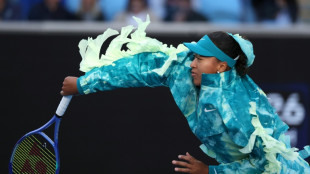
-
 Iran Guards chief says 'finger on trigger', warns US against 'miscalculations'
Iran Guards chief says 'finger on trigger', warns US against 'miscalculations'
-
Imperious Sinner barrels into Australian Open round three
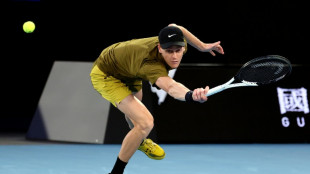
-
 Storms, heavy rain kill 9 children across Afghanistan
Storms, heavy rain kill 9 children across Afghanistan
-
Games giant Ubisoft suffers share price collapse

-
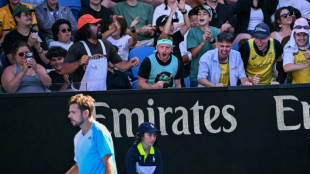 Exhausted Wawrinka battles on in Melbourne farewell after five-set epic
Exhausted Wawrinka battles on in Melbourne farewell after five-set epic
-
'Too dangerous to go to hospital': a glimpse into Iran's protest crackdown
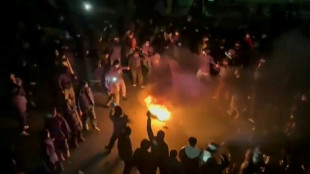
-
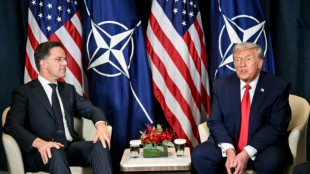 Bruised European allies wary after Trump's Greenland climbdown
Bruised European allies wary after Trump's Greenland climbdown
-
Austrian ex-agent goes on trial in Russia spying case

-
 Japan suspends restart of world's biggest nuclear plant
Japan suspends restart of world's biggest nuclear plant
-
Djokovic, Swiatek roll into Melbourne third round, Keys defence alive

-
 New Zealand landslips kill at least two, others missing
New Zealand landslips kill at least two, others missing
-
Djokovic says heaving Australian Open crowds 'good problem'

-
 Swiatek in cruise control to make Australian Open third round
Swiatek in cruise control to make Australian Open third round
-
Austrian ex-agent to go on trial in Russia spying case
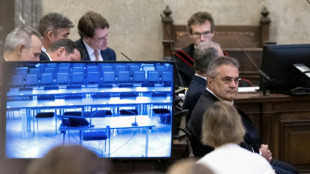
-
 Bangladesh launches campaigns for first post-Hasina elections
Bangladesh launches campaigns for first post-Hasina elections
-
Afghan resistance museum gets revamp under Taliban rule

-
 Multiple people missing in New Zealand landslips
Multiple people missing in New Zealand landslips
-
Sundance Film Festival hits Utah, one last time

-
 Philippines convicts journalist on terror charge called 'absurd'
Philippines convicts journalist on terror charge called 'absurd'
-
Anisimova grinds down Siniakova in 'crazy' Australian Open clash
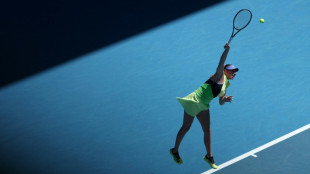
-
 Djokovic rolls into Melbourne third round, Keys defence alive
Djokovic rolls into Melbourne third round, Keys defence alive
-
Vine, Narvaez take control after dominant Tour Down Under stage win

-
 Chile police arrest suspect over deadly wildfires
Chile police arrest suspect over deadly wildfires
-
Djokovic eases into Melbourne third round - with help from a tree
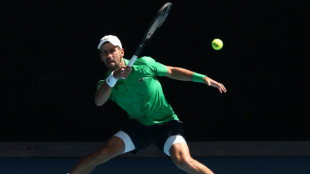
-
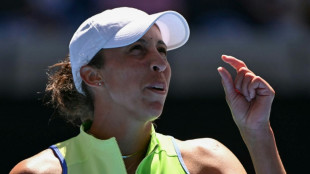 Keys draws on champion mindset to make Australian Open third round
Keys draws on champion mindset to make Australian Open third round
-
Knicks halt losing streak with record 120-66 thrashing of Nets

-
 Philippine President Marcos hit with impeachment complaint
Philippine President Marcos hit with impeachment complaint
-
Trump to unveil 'Board of Peace' at Davos after Greenland backtrack
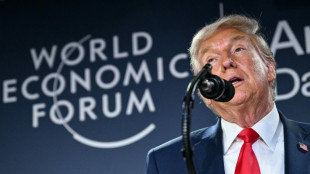
-
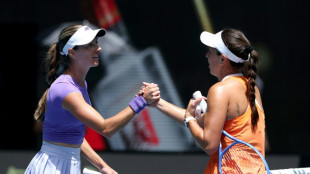 Bitter-sweet as Pegula crushes doubles partner at Australian Open
Bitter-sweet as Pegula crushes doubles partner at Australian Open
-
Hong Kong starts security trial of Tiananmen vigil organisers

-
 Keys into Melbourne third round with Sinner, Djokovic primed
Keys into Melbourne third round with Sinner, Djokovic primed
-
Bangladesh launches campaigns for first post-Hasina polls

-
 Stocks track Wall St rally as Trump cools tariff threats in Davos
Stocks track Wall St rally as Trump cools tariff threats in Davos
-
South Korea's economy grew just 1% in 2025, lowest in five years

-
 Snowboard champ Hirano suffers fractures ahead of Olympics
Snowboard champ Hirano suffers fractures ahead of Olympics
-
'They poisoned us': grappling with deadly impact of nuclear testing
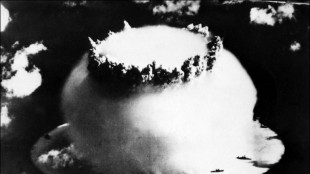
-
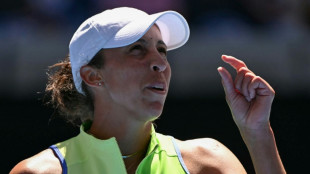 Keys blows hot and cold before making Australian Open third round
Keys blows hot and cold before making Australian Open third round
-
Philippine journalist found guilty of terror financing

-
 Greenlanders doubtful over Trump resolution
Greenlanders doubtful over Trump resolution
-
Real Madrid top football rich list as Liverpool surge

-
 'One Battle After Another,' 'Sinners' tipped to top Oscar noms
'One Battle After Another,' 'Sinners' tipped to top Oscar noms
-
Higher heating costs add to US affordability crunch


Trio wins physics Nobel for illuminating electrons
France's Pierre Agostini, Hungarian-Austrian Ferenc Krausz and French-Swedish Anne L'Huillier won the Nobel prize in physics on Tuesday for research using ultra quick light flashes that enable the study of electrons inside atoms and molecules.
Their technique employs pulses measured in attoseconds, a unit so short that there are as many in one second as there have been seconds since the universe's birth over 13 billion years ago, the jury said.
The laureates' research has made it possible to examine moves or changes so rapid that they were previously impossible to follow, with potential applications in both electronics and medical diagnostics.
The Royal Swedish Academy of Sciences likened the process to how the flapping wings of a humming bird turn into a blur for the human eye, but can be slowed and examined using high-speed photography.
"We can now open the door to the world of electrons. Attosecond physics gives us the opportunity to understand mechanisms that are governed by electrons," Eva Olsson, chair of the Nobel Committee for Physics, said in a statement.
- 'Not so many women' -
In 1987, L'Huillier "discovered that many different overtones of light arose when she transmitted infrared laser light through a noble gas," the Nobel Committee noted, adding that she has continued to explore this phenomenon, "laying the ground for subsequent breakthroughs".
In the early 2000s, Agostini and Krausz worked on experiments that made it possible to isolate light pulses that lasted only a few hundred attoseconds.
L'Huillier, only the fifth woman to be awarded the Physics Prize since 1901, is a professor at Lund University in Sweden.
L'Huillier told reporters she was in the middle of teaching a class when she received the call from the Academy, making it "difficult" to finish the class, to whom she told nothing.
"I am very touched ... There are not so many women that get this prize so it's very, very special," she said.
Before L'Huillier, Marie Curie (1903), Maria Goeppert Mayer (1963), Donna Strickland (2018) and Andrea Ghez (2020) are the only women to have won the award.
Speaking later at a press conference, she encouraged young women interested in a career in science to "go for it".
The laureate, who is married and has two sons, stressed it was possible to combine a research career with an "ordinary life, with a family and children."
L'Huillier and Krausz had been seen as contenders for the honour, having been awarded the prestigious Wolf Prize last year together with Canadian physicist Paul Corkum.
- Fellow Hungarian -
However, Krausz said he had not been expecting a call.
"I was not sure whether I was dreaming or whether it was reality," he told the Nobel Foundation in an interview.
The physicist said he had been preparing for an open day at the institute where he worked, where he was meant to hold a few lectures for interested visitors.
"It remains to be seen whether this is going to work out, but this is at least the plan," Krausz said.
The physics award is the second Nobel of the season after the Medicine Prize on Monday, awarded to messenger RNA researchers Katalin Kariko, a Hungarian like Krausz, and Drew Weissman for their groundbreaking technology that paved the way for mRNA Covid-19 vaccines.
Krausz said he had been pleased to hear of the award for his compatriot.
"I'm a great admirer of her, not just for her achievements, but also for the way she actually achieved what she achieved," he said, referring to the years Kariko toiled away at her research despite struggling to achieve recognition and even secure funding for it.
The Physics Prize will be followed by the Chemistry Prize on Wednesday, with the highly watched Literature and Peace Prizes to be announced on Thursday and Friday.
The Economics Prize -- created in 1968 and the only Nobel not included in the 1895 will of Swedish inventor and philanthropist Alfred Nobel, which founded the awards -- closes out the 2023 Nobel season on Monday.
R.Fischer--VB



